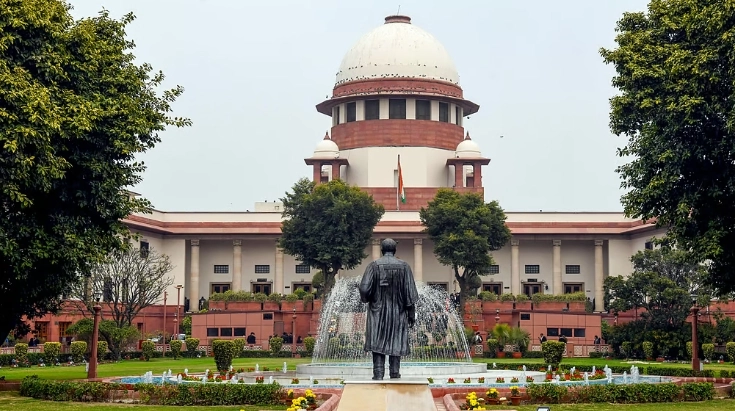
In a significant ruling, the Supreme Court recently overturned a Chhattisgarh High Court judgment that had convicted a man for murder and other offences, observing that in a case based solely on circumstantial evidence, the accused cannot be held guilty.
The apex court, while making this observation, allowed the appeal of the accused-appellant, Firuram Sahu, and acquitted him of all charges. "There is no chain of circumstances available in the case which could lead to a conclusion of guilt, and there remains considerable scope for alternative hypotheses pointing to the innocence of the accused (Firuram Sahu).
The only circumstance is the recovery of a ‘tessi’ with human blood, which is insufficient to convict the accused for murder," stated a two-judge bench comprising Justice Sudhanshu Dhulia and Justice K Vinod Chandran in a recent ruling.
While setting aside the High Court's judgment, the Supreme Court acquitted Sahu and dismissed the prosecution’s case as unreliable. Sahu's counsel and Advocate-on-Record (AOR), Hitendra Rath, told this newspaper that the top court did not place any credence on the prosecution’s version.
The court further clarified that this was a clear case of circumstantial evidence. The only claim made by the prosecution was that there had been a land dispute between the deceased and the accused. The deceased’s son had testified that on the day of the murder, his mother had been complaining about the accused.
Discarding the testimonies of prosecution witnesses, including the deceased’s son, the court reiterated that no conclusive chain of events was established to prove guilt beyond a reasonable doubt.
"It is evident that the circumstances proved relate only to a title dispute between the deceased and the appellant, and the recovery of a ‘tessi’ with human blood from the appellant’s bathroom following a disclosure allegedly made by him. However, this recovery alone is not sufficient to convict the accused of murder," the court held.
It also noted that the prosecution failed to provide any other credible evidence linking the accused directly to the crime. “The recovery is inconsequential, as the alleged weapon was never conclusively connected to the murder,” the court stated.
As a result, the court concluded that the prosecution had failed to prove its case beyond a reasonable doubt. "Under these circumstances, the conviction and sentence of the appellant are set aside," the apex court ruled.
Firuram Sahu had been convicted under several sections of the Indian Penal Code (IPC), including Section 302 (Murder) and Section 201 (Destruction of Evidence), and sentenced to life imprisonment by the trial court. This conviction was upheld by the Chhattisgarh High Court in 2024, which was then challenged by Sahu in the Supreme Court.